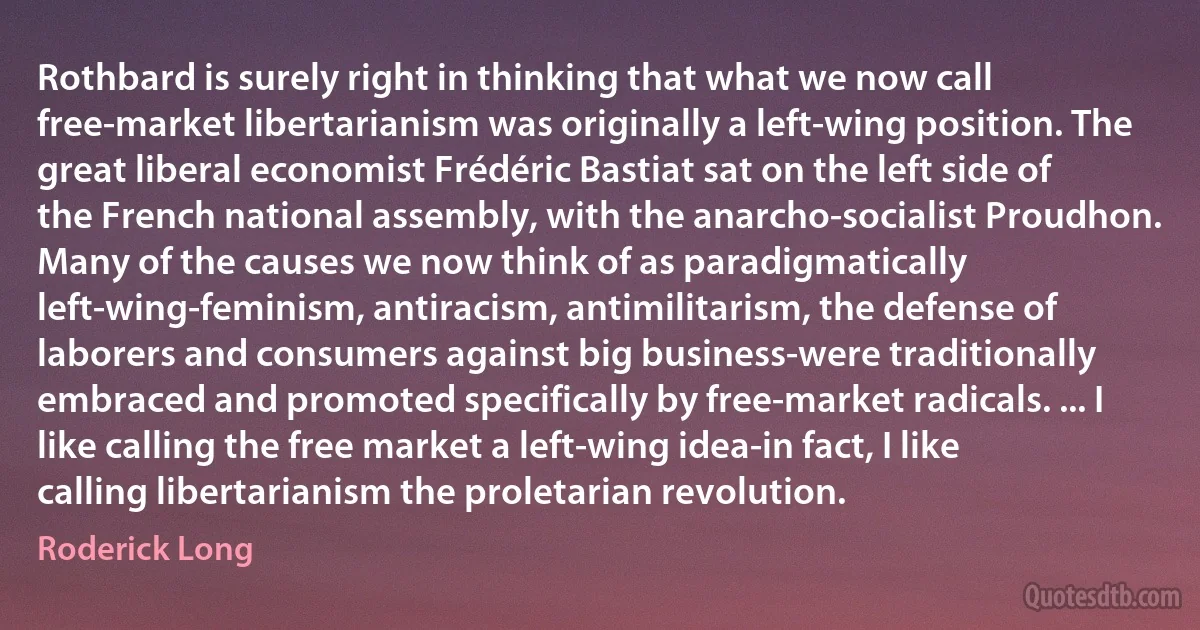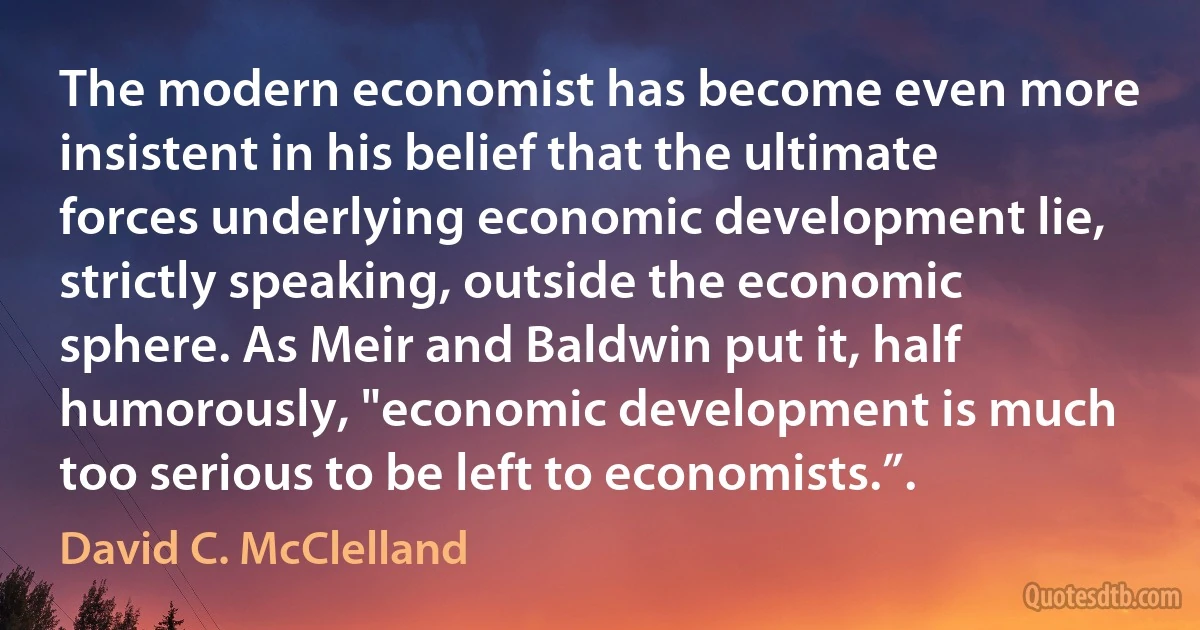Economist Quotes - page 4
The modern economist ... is used to measuring the "standard of living” by the amount of annual consumption, assuming all the time that a man who consumes more is "better off” than a man who consumes less. A Buddhist economist would consider this approach excessively irrational: since consumption is merely a means to human well-being, the aim should be to obtain the maximum of well-being with the minimum of consumption.

E. F. Schumacher
Unlike the members of the physical and biological sciences, the economist is asked to explain his work in a manner that is interesting and convincing to a weary listener. Yet there is no reason to believe that the explanation of our economic and social world is inherently simpler than the explanation of our physical world.

George Stigler
This pioneer work, written for both the professional economist and the businessman, has become a classic in its field. It is a detailed examination of the structure of the large business corporation in relation to its actual economic functioning. Because Gordon views the corporation not as an external institution but as organized human activity, his emphasis is on the personal and volitional elements in leadership, or how businessmen actually shape their practices. His analysis is based on a formidable mass of case material and statistical data.

Robert Aaron Gordon
Mehrling: So you didn't read at that time the classic banking texts, for example, Bagehot's Lombard Street?
Volcker: Well I read some of Bagehot, and I read a lot of Hawtrey. I remember I read a lot of Hawtrey.
Mehrling: Currency and Credit? The Art of Central Banking?
Volcker: I don't remember the names of the books, just being in London. In those days I used to read The Economist and the Financial Times, so I kept up with what was going on in the money markets.

Paul Volcker
The notion of a steady state has meant different things at different times in history. To the traditional or classical economist, the steady state takes the biophysical dimensions of the planet - including population and available resources - as given and adapts technology and tastes to these objective conditions.

Herman E. Daly
Its importance is that if R[egulator] is fixed in its channel capacity, the law places an absolute limit to the amount of regulation (or control) that can be achieved by R, no matter how R is re-arranged internally, or how great the opportunity in T. Thus the ecologist, if his capacity as a channel is unchangeable, may be able at best only to achieve a fraction of what he would like to do. This fraction may be disposed in various ways -he may decide to control outbreaks rather than extensions, or virus infections rather than bacillary - but the quantity of control that he can exert is still bounded. So too the economist may have to decide to what aspect he shall devote his powers, and the psychotherapist may have to decide what symptoms shall be neglected and what controlled.

W. Ross Ashby
That is the central idea of our current tradition. It is the idealization of the mass and the negation of the individual; its panacea, its method of realization, is political direction; its goal, as always, is the undefined Good Society... The aim of pedagogy today is not to prepare the individual for his own enjoyment of life, but to enable him to better serve the mass machine; the psychologist makes adjustment to mass-thought the measure of healthy thinking and living; jurisprudence puts social responsibility ahead of individual responsibility; the concern of the scientist in the discovery of principles is secondary to his preoccupation with mass production; the economist studies institutions, not people; and philosophy rejects speculation as to the nature of man or the purpose of life as effort that might better be put to the practical problems of society. Ours is the culture of ‘the all,' rather than ‘the one.

Frank Chodorov



